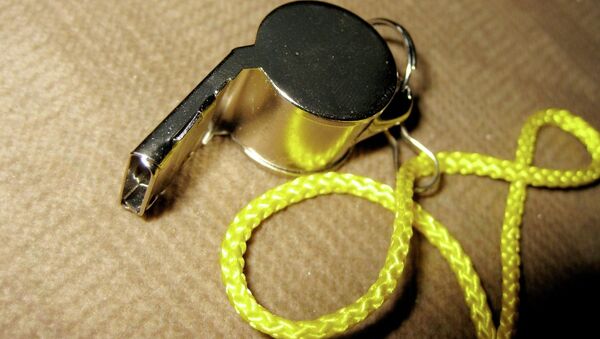The Trade Secrets Directive — which has been under discussion since 2013 — is intended to harmonize EU laws on industrial espionage, including the unlawful use of misappropriated trade secrets and the removal from the market of goods that have been manufactured on the basis of a trade secret that has been illegally acquired.
#Trilogue meetings on draft Trade Secrets Directive started today #DemocraticDeficit http://t.co/IgOv1e1xyX #ce pic.twitter.com/ARabl6EMeB
— ClientEarth (@ClientEarth) September 15, 2015
However, civil rights group believe the directive may be used to prevent journalists from uncovering unscrupulous practices in European companies — a staple diet of investigative reporting. It is also feared that it could lead to companies taking legal action against whistleblowers and journalists themselves.
Anaïs Berthier, a Senior Lawyer at environmental campaign group ClientEarth blogged on EurActiv.com:
"Its actual impact is much wider, and more dangerous. The draft law allows industry to sue public authorities, journalists and whistle blowers when they reveal business information, helping ensure secrets affecting public health and the environment never see the light of day."
When Is a Secret Not a Secret?
The main issue lies in the definition of "trade secrets". Critics say the proposed definition is extremely broad and could be used to sue anyone who "unlawfully acquires, uses or discloses" secret business information.
Trade unions say this could hit whistleblowers who wish to disclose information that is in the public interest as well as journalists using that information, as in the case of Antoine Deltour, a former clerk at Price Waterhouse Coopers, who unveiled the so-called LuxLeaks scandal.
People wanting to support Lux Leaks whistleblower Antoine Deltour can do it here: https://t.co/anOUZzcJPj #SN7 pic.twitter.com/B7iSC460Rr
— Steve Pennells (@pennells) August 17, 2015
Having exposed the extent of the use of low-tax Luxembourg by huge multinationals to reduce their tax bills, he is currently being sued by the Luxembourg justice and Price Waterhouse Coopers, the company he took the information from, and faces up to 10 years in jail.
Will safeguards in draft #tradesecrets law be dropped in meetings where public has no say? http://t.co/IgOv1e1xyX #ce pic.twitter.com/bgkdb1Zp6D
— ClientEarth (@ClientEarth) September 15, 2015
This is denied by the European Commission which says journalists will remain free to investigate and publish news on companies' practices and business affairs, as they are today. The draft directive only deals with unlawful conduct by which someone acquires or discloses, without authorization and through illicit means, information with commercial value that companies treat as confidential in order to keep a competitive advantage over their competitors.
"If no unlawful conduct takes place, the relevant disclosure of the trade secret is out of scope of the draft directive and therefore not affected by it," a statement says on the Commission websites says.
"Even when a trade secret is misappropriated, the draft directive foresees a specific safeguard in order to preserve the freedom of expression and right to information (including a free press) as protected by the Charter of Fundamental Rights of the European Union."
Anaïs Berthier says that European lawmakers are considering amendments to the draft directive which help safeguard access to information, including greater protection for public authorities and whistleblowers disclosing information in the public interest. But she warns:
"Even so, the proposal still poses a serious risk to the public's right to freedom of information and expression."




